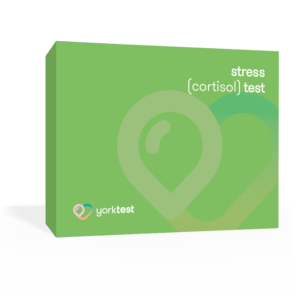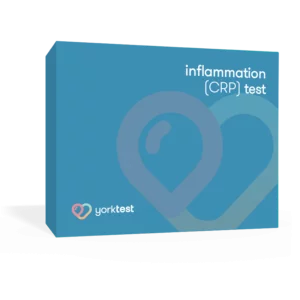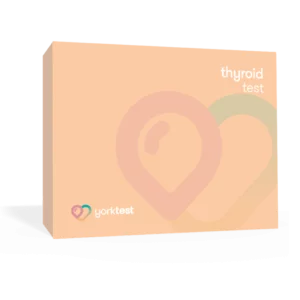- What is Trapped Wind?
- What Causes Bloating?
- Symptoms of Trapped Wind
- Treating & Preventing Bloating/Trapped Wind
- Review Your Diet
- Eat Slowly & Carefully
- Walking & Other Exercise
- Massages
- Drinks
- Establish a Routine
- Food Intolerances & Trapped Wind
- Coeliac Disease & Trapped Wind
- IBS & Trapped Wind
- When To Seek Medical Attention
Trapped wind or a bloated stomach may seem like a minor inconvenience, but they can cause considerable discomfort if not treated properly. Regardless of the cause, feeling bloated or having trapped wind just isn’t pleasant. One of the biggest issues is that sufferers often feel too embarrassed to seek help. However, painful trapped wind is very common and is nothing to feel ashamed about.
Understanding the causes of bloating and trapped wind is the first step towards effective treatment. In this blog, we will explore common triggers, offer practical advice on how to relieve symptoms quickly and provide tips to prevent these issues from recurring in the future. Whether you’re looking for immediate relief or long-term solutions, we’ve got you covered.
What is Trapped Wind?
There’s a high likelihood that you’ve experienced trapped wind at some point in your life. Trapped wind refers to the pain and discomfort in the stomach and abdomen that’s caused by a build-up of gas in the digestive system. This gas puts pressure on the stomach, often leading to discomfort and pain.
What Causes Bloating?
Arguably, the most common reason for bloating is the presence of excessive gas in the gut. This can be caused by certain foods and drinks, such as fizzy drinks and vegetables, or by swallowing air when eating. Some women feel bloated around the time of their period, and (in extreme cases) persistent bloating can sometimes be an early sign of something more serious, such as ovarian cancer.
Bloating can also be caused by digestive system issues, such as:
- A food intolerance.
- Coeliac disease.
- IBS (Irritable Bowel Syndrome).
- Constipation.
Symptoms of Trapped Wind
The symptoms of trapped wind can range from mild discomfort to surprisingly painful experiences. Some common symptoms include:
- Flatulence and burping.
- Feeling uncomfortably full after eating.
- Stomach cramps.
- Nausea.
- Pain when bending over, lying down, or exercising.
- Rumbling or gurgling noises from the stomach.
- Pain that moves around the body, behind the ribs, up the back, and even into the shoulder.
- Sporadic stabbing pains.
Treating & Preventing Bloating/Trapped Wind
There are many ways to treat or even prevent bloating and trapped wind. Here are some of the most common:
Review Your Diet
One of the first steps in treating trapped wind is to assess your diet. Your diet plays a key role in the build-up of gas in your stomach. Start by eating smaller, more frequent meals instead of large, heavy ones. You should also avoid foods that are known to cause gas, such as beans, cabbage, and lentils. As for drinks, fizzy drinks, alcohol, and caffeine should all be avoided.
Eat Slowly & Carefully
It may seem odd, but eating slowly and more carefully can help to prevent trapped wind. Eating slowly aids digestion, and eating with your mouth closed helps to prevent swallowing air that could become trapped wind.
It’s also important to feel relaxed while you’re eating. Nervous tension can affect digestion and, if you’re stressed, you may eat quickly and swallow air. Try practising slow breathing techniques before eating, and ensure you are in familiar surroundings.
Walking & Other Exercise
Walking and exercising are not only good for overall health, but also help to relieve trapped wind and bloating. Walking is a commonly recommended remedy as it uses gravity to help move gas through your system. You can also try exercises like yoga poses or squats.
Massages
Gently massaging the affected area can help to alleviate pain and move the gas. Massaging your lower abdomen may help push the wind downward and out of your body.
Drinks
While fizzy drinks and caffeine can cause trapped wind, certain drinks can actually help relieve bloating. Drinking warm water (though not always pleasant) has been shown to help. Adding a drop of peppermint oil to the warm water has also proven to be extremely effective. Herbal teas such as chamomile, ginger, and dandelion can also soothe trapped wind.
Establish a Routine
Establishing a routine is a generally healthy practice. Establishing a routine may help you to sleep and have other mental health benefits, but it can also help when it comes to trapped wind. Eating meals at regular intervals means your digestive system can get into a routine, allowing digestion to flow more smoothly.
Food Intolerances & Trapped Wind
Food intolerances and digestive issues often go hand in hand. Many types of food intolerance can lead to digestive problems, with some of the most common being reactions to wheat, barley, rye, and dairy. Common symptoms of food intolerance include stomach pains, frequent bloating, trapped wind, and diarrhoea. If you think you may have a food intolerance, then do consider taking one of our food intolerance tests.
Coeliac Disease & Trapped Wind
Coeliac disease is an autoimmune condition that causes the body’s immune system to attack its own tissues when gluten is consumed, damaging the lining of the small intestine. It is estimated that 1 in 100 people have the condition in the UK. One of its lesser-known side effects is that it can result in a lot of trapped wind. Coeliac disease can also trigger bloating, diarrhoea, constipation, fatigue and abdominal pain.Â
IBS & Trapped Wind
People with IBS (irritable bowel syndrome) commonly experience bloating, stomach pain, and trapped wind. Symptoms are usually worse in the evenings. Managing IBS symptoms often involves identifying and avoiding food triggers, exercising regularly, and managing stress. If symptoms persist or worsen, it’s advisable to seek medical attention from a professional.
When To Seek Medical Attention
In most cases, trapped wind or bloating should subside with some simple lifestyle changes. However, if symptoms persist and interfere with daily life then seeking medical advice is important.
You may wish to seek medical attention if:
- You feel bloated more than 12 times a month.
- You have swelling or a lump in your stomach.
- You’ve been feeling bloated for more than 3 weeks.
- You’ve tried changing your diet but bloating still persists.
- You have bloating and trapped wind along with sickness, diarrhoea, weight loss, constipation and/or blood in stool.
- You find it difficult to perform daily activities because of these feelings.
You should call emergency services if:
- It hurts when touching your stomach.
- You’re vomiting blood or your vomit looks like ground coffee.
- Your stomach ache came on suddenly and strongly.
- Your stool is bloody or black.
- You cannot breathe or have chest pains.
- You cannot perform bodily functions just as passing wind or urinating.
We sincerely hope you don’t struggle with trapped wind or bloating, but hopefully this blog has been helpful if they are things that you battle with. However, if you are a sufferer and think that you may have a contributing food intolerance, then why not order one of our food intolerance tests? They are extremely easy to use and could help to change your way of living for the better.













